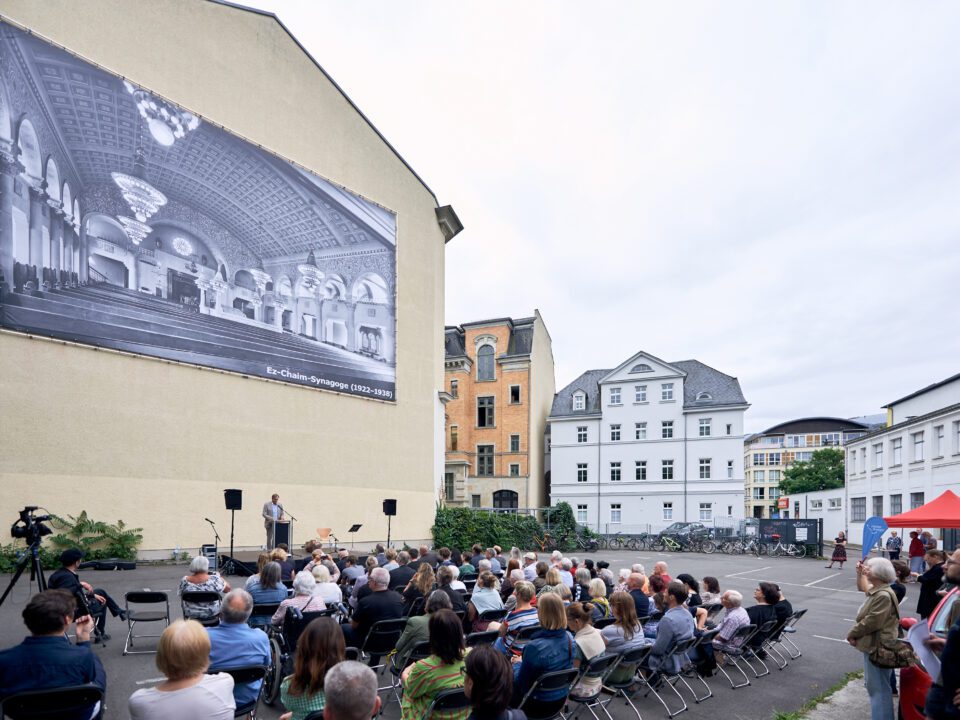AEPJ Successfully Concludes the Online Sessions of the European Routes of Jewish Heritage Incubator 2025


This week, the AEPJ successfully completed the full series of online training sessions of the European Routes of Jewish Heritage Incubator 2025: Interpreting Architecture, Fostering Dialogue for Peace. With four rich, in-depth lectures exploring themes at the intersection of Jewish heritage, architecture, memory, education and digital innovation, participants from across Europe took part in a powerful shared learning process that now sets the stage for next week’s in-person programme in Bologna and Forlì.
The Incubator opened with a keynote by Jeremy Leigh (Hebrew Union College – Jerusalem), who invited participants to critically reflect on the relationship between Jewish heritage interpretation and the fight against antisemitism. His session examined how, despite decades of preservation work, material heritage alone cannot shift attitudes unless narratives themselves are intentionally reshaped. This conversation laid the foundation for the entire training trajectory: understanding how the stories we tell at heritage sites can promote deeper awareness, empathy and resilience against contemporary hate speech.
The second online session, led by Eva Mikulášková and Tomáš Spáčil of Post Bellum (Czech Republic), introduced participants to the Memory of Nations archive—one of Europe’s largest oral history collections—and its acclaimed educational programme Our Neighbours’ Stories. Through testimonies and intergenerational learning methods, the speakers demonstrated how personal narratives help students think critically, connect emotionally, and engage more deeply with the complex histories of the 20th century, including the Holocaust.
Midweek, Shelley Hornstein (York University, Toronto), an AEPJ consultant and leading scholar of architecture and memory, explored how museums, memorials, and even vanished or invisible sites shape our understanding of urban space. Her session proposed that architecture—whether present or absent—serves as an active storyteller, capable of transforming how visitors perceive the layered histories and identities embedded in European cities.
Finally, Pavel Kats (Jewish Heritage Network, Amsterdam) introduced participants to the emerging European data space initiative and the specific need for a dedicated infrastructure for Holocaust memory. He highlighted how Jewish heritage organisations of all sizes can play a critical role in shaping this future ecosystem by contributing their experiences, identifying data needs and imagining new digital tools for education and commemoration. The discussion also served as preparation for the collaborative workshop that will take place during the in-person segment of the Incubator.
These online sessions form part of the broader Incubator programme, developed in partnership with ATRIUM: Architecture of Totalitarian Regimes of the XX Century in Europe’s Urban Memory and hosted by the University of Bologna Centre for Advanced Studies on Tourism. This year’s edition focuses on how the interpretation of architectural heritage can foster dialogue for peace, strengthen responses to contemporary forms of racism, xenophobia, and antisemitism, and support alliances between cultural routes and other memory-work actors across Europe.
With the digital phase now complete, AEPJ and all participating Route managers are gearing up for the intensive in-person programme in Bologna and Forlì next week. These upcoming training days will bring together keynote lectures, workshops, site-based activities and collaborative sessions designed to deepen the themes introduced online and to build practical strategies for the future of the European Routes of Jewish Heritage.


